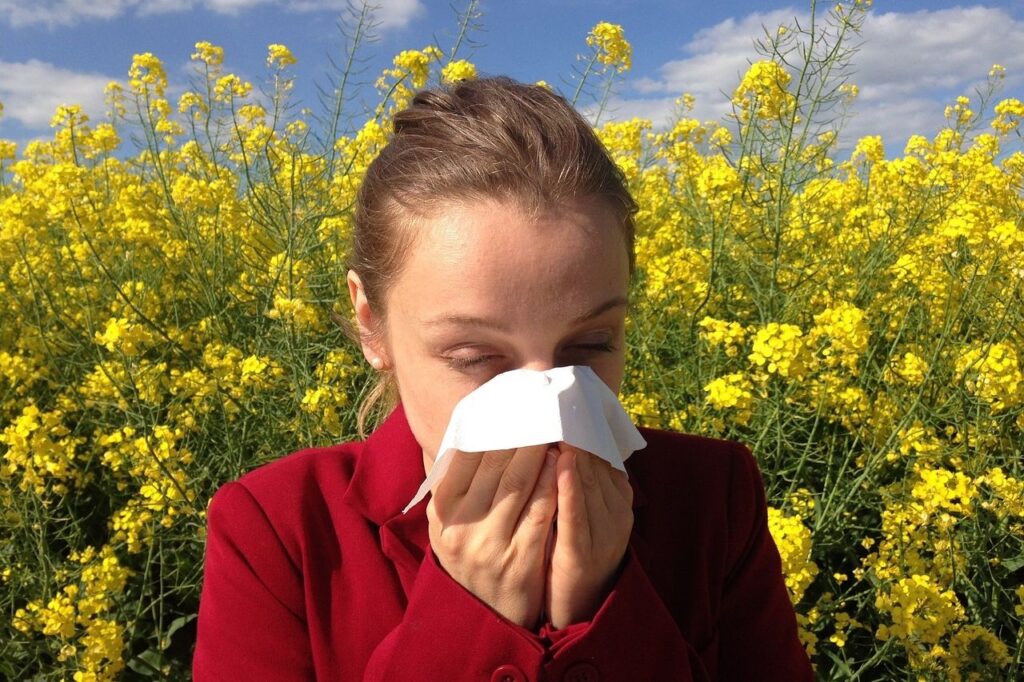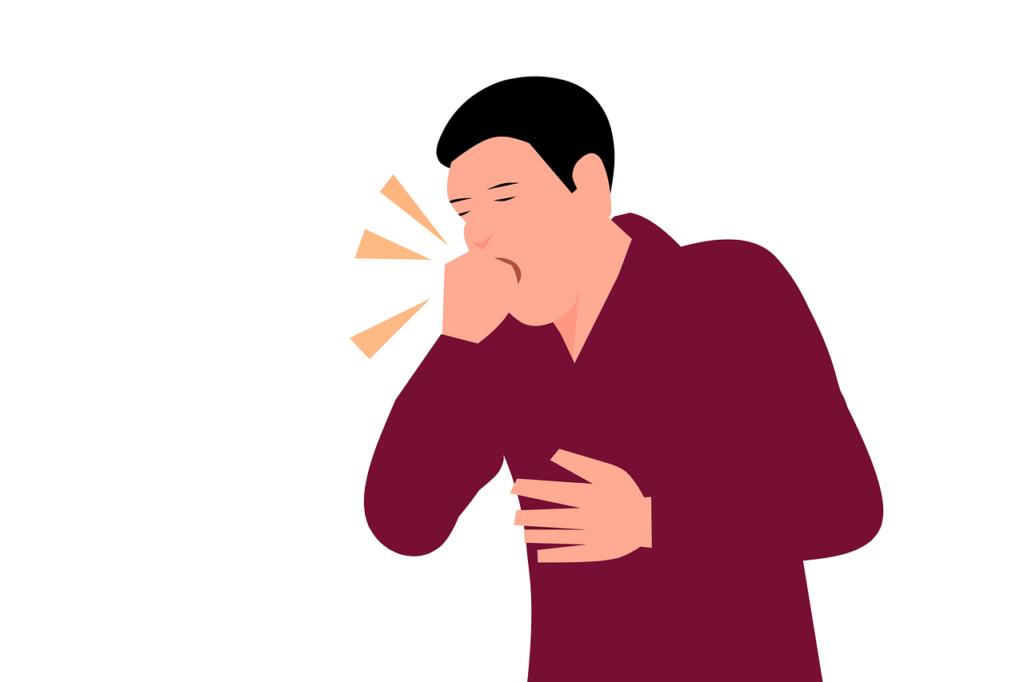Asthma is a chronic respiratory condition that causes inflammation and narrowing of the airways, making it difficult to breathe. It can lead to coughing, wheezing, chest tightness, and shortness of breath.
Asthma attacks can be triggered by various factors, including allergens, exercise, cold air, and smoke. Currently affects 300 million people worldwide. Eosinophils produces various inflammatory mediators responsible for inflammation in bronchioles, broncho constriction and vasopermiability which leads to bronchospasm.
Eosinophilia is normally observed in patients with bronchial asthma with a range
of 500 to 2000 eosinophilia / µi in blood. Swasa Kasam mentioned in siddha literatures which is equated to bronchial asthma with the symptoms of breathlessness, cough with or without expectoration, tightness of chest, wheezing, elevated eosinophil count and decreased.
Approximately 50% of childrens affect asthma.

Causes
The exact cause of asthma is unknown, but it is thought to be a combination of genetic and environmental factors. Some common risk factors for asthma include:
- Family history of asthma.
- Exposure to allergens such as dust mites, pollen, and pet dander.
- Respiratory infections.
- Smoking etc.

Symptoms of Asthma
The symptoms of asthma can vary from person to person and can range from mild to severe. The most common symptoms of asthma include:
- Shortness of breath: Difficulty breathing, especially during exercise or at night.
- Wheezing: A whistling sound made when breathing.
- Chest tightness: A feeling of tightness or pressure in the chest.
- Coughing: A dry, hacking cough, especially at night or in the early morning.
- Rapid breathing: Breathing faster than usual.

Types of Asthma according to Siddha:
We find mention of asthma in Siddha
literature. It is called Eraippu Noi
There are five types of asthma
- 1. Vazhi eraippu noi (Gastro- Oesophageal Reflux and Asthma)
- 2. Iya Eraippu Noi (Bronchial Asthma)
- 3. Iya Vali Eraippu Noi (Complications of Bronchial Asthma-Cardiac and renal symptoms)
- 4. Mukkutcha Eraippu Noi (Chronic Bronchial Asthma)
- 5. Mel Nokku Eraippu Noi (Acute Severe Asthma)
1. Vazhi Eraippu Noi (Gastro- oesophageal Reflux and Asthma) – Digestive troubles may lead to accumulation of Vata. This is not a grave form of asthma. Easily be cured.
2. Iya Eraippu Noi – Exposure to cold freezing winds or rain can cause Kapha. It is accompanied by symptoms such as the runny nose, nasal congestion breathing trouble when lying down.
3. Iyyavazhi Eraipu Noi – Both Vata and Kapha accumulate to this kind of asthma. Its symptoms include breathlessness, bloating, indigestion etc.
4.Mukkutcha Eraipu Noi – An imbalance of all three humors- Vata Pitta and Kapha accumulate mukkutcha Eraipu Noi. A person who has contracted it might experience severe chest pain, constipation and even loss of consciousness.
5. Mel nokku Eraippu Noi – This is the gravest form of bronchial asthma and requires extensive treatment.
Diagnosis of Asthma
Diagnosing asthma involves a combination of medical history, physical examination, and diagnostic tests. These tests may include:
- Spirometry: Measuring lung function to assess airflow
- Peak flow meter: Measuring the maximum force of exhaled air
- Allergy testing: Identifying specific allergens that trigger asthma symptoms.
- Chest X-ray: Ruling out other respiratory conditions.

Treatment of asthma
There is no cure for asthma, but there are effective treatments that can help control symptoms and prevent asthma attacks.
- Quick-relief medications: These medications are used to open up the airways and relieve symptoms during an asthma attack. They are typically inhaled or taken orally.
- Long-term control medications: These medications help prevent asthma attacks and reduce inflammation in the airways. They are typically taken daily in the form of inhalers, pills, or liquids.
- Lifestyle changes: Avoiding triggers, such as allergens and smoke, can also help manage asthma symptoms. Regular exercise and maintaining a healthy weight can also be beneficial.
Siddha Treatment of Asthma
Every siddha medicine is done with deranged humor. Initially a purgative , emetic , or a combination of both may be used to normalize the deranged kapham and vatham. The main drug is to remove excess phlegm from the respiratory tract.
Leaf juice of Adhatoda vasica (Adathodai), Oscimum sanctum( Thulasi) or Daemia extensa ( Uthamani) may be given in more than required quantity so as to induce vomiting and remove mucus in excess quantity. Drugs like Athimathuram, Arathai, Kandankathiri, Manathakkali, Koshtam, Lavangam, Thippili, Milagu, Chukku, etc can be used.
Siddha Medicines
1. Adathodai kudineer
2. Thaleesapathradi choornam
3. Poorna chandrodayam
4. Thalaga parpam
5. Sembu parpam
6. Pavazha Parpam
7. Muthuchippi Parpam
8. Kasthuri Karuppu
9. Thalaga Karuppu
10. Vasantha Kusumakaram mathirai
11. Swasa kudori pills etc.
These Siddha medicines are scientifically accepted.
Yoga for Asthma:
- Sarvangasanam
- Pujangasanam
- Sarpasanam
- Maha Mudra Pachimodasanam
- Artha Machendrasanam
- Savasanam
Foods Habbits
- Fried Foods.
- Difficult to digest Foods
- Refrigerated Foods
- All refined & processed Foods
- Food Preservatives & Food Coloring
- Allergic foods
- Curd Preparations
- Cool Drinks, ice Creams, Chocolates, Sweets, Strong tea & Coffee
- Alcoholic Beverages
- Condiments Pickles, Sauces
- Citrus Fruits like lemon, orange.
- Other fruits like pineapple, grapes, jackfruit, mango, pomegranate. mustbe avoided.
Complications
If asthma is not well-controlled, it can lead to serious complications, including:
- Frequent asthma attacks
- Lung damage
- Death
Prevention
There is no sure way to prevent asthma, but there are steps you can take to reduce your risk, including:
If you have a family history of asthma, talk to your doctor about ways to reduce your risk.
Avoid exposure to allergens and other triggers.
Get regular exercise.
Maintain a healthy weight.
Quit smoking.
Seek Medical Attention
If you experience any of the following symptoms, seek medical attention immediately:
Severe shortness of breath
Wheezing that worsens despite using quick-relief medication
Blue lips or fingernails
Confusion or difficulty speaking
Conclusion
Asthma is a serious condition, but with proper treatment and management, most people with asthma can live normal, healthy lives.
Note: The information provided above is for general knowledge only. If you have any medical concerns, it is important to consult a qualified siddha doctors.

Dr. Augastina B.S.M.S., PGDY, is a passionate Siddha Doctor with a heart of gold. She believes in healing one step at a time. In her writing, you’ll find not just knowledge, but genuine care and a holistic approach to health and well-being.

